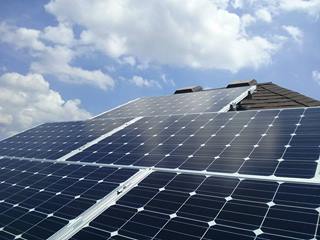Check out some frequently asked questions or feel free to ask the inspector your own question.
Have a question you would like to ask our professional home inspector please email brad@homefrontinspections.caShould I buy or rent my hot water tank?
The average tank life is 15 years, with longer life spans in low mineralized water areas and shorter life spans in highly mineralized water areas. If you have rural well water it is no doubt hard, mineralized water and you will have a shorter life. Maintaining your tank by draining it once a year to remove sediment will prolong its life as well.
Recent changes to the Ontario Building Code require that water delivered to fixtures have a controlled maximum temperature of 49 degrees Celsius (120 degrees F). This applies to new water tank installations as well as new construction. Turning down the tank temperature is not an accepted solution. Typically water-mixing valves are installed at the tank source or each fixture to meet code requirements. Always have a qualified licensed contractor install your water tank.
I have heard of problems with 6 litre toilets, what is the best one to buy?
How much attic insulation should I have?
In new homes most insulation companies use blown in insulation in attics. All blown insulation settles some over time but installers must install enough insulation to compensate for settlement. This is noted as a requirement for cellulose insulation installation by the NRC at http://irc.nrc-cnrc.gc.ca/ccmc/registry/07/preface/07215_1_e.pdf.
My room above the garage is colder than the rest, why?
We are buying our first home what should we know about home systems?
I have a sump pump in my basement, why do I have one and my friends do not?
What is the most common structural problem you run in to?
Should I install a mid-efficiency or high-efficiency furnace?
If I install the high efficiency furnace and pay the extra $1400 how long will it take my savings in heating cost to make up the $1400 difference?
If I assume the minimum of 12% increase in efficiency and therefore a 12% savings in heating cost per year then it is easy to calculate. In 2003 I spent about $1000 on heating so I would save about $120 per year and it would take you 11 years to make up the difference. So, if you are considering moving in the next 5 years you will not see the savings but if you are planning to stay for 10 years you will probably see the higher cost for a high efficiency furnace pay for itself especially with rising gas prices.
When converting from mid to high you need to consider all extra costs as well like possibly installing a smaller chimney if only the water tank exhausts in the chimney now, additional furnace fresh air intake vents, etc. Always have licensed heating contractors do all heating system repairs and installation and always get 3 estimates before hiring any contractor.
Have a question you would like to ask our professional home inspector please email brad@homefrontinspections.ca



